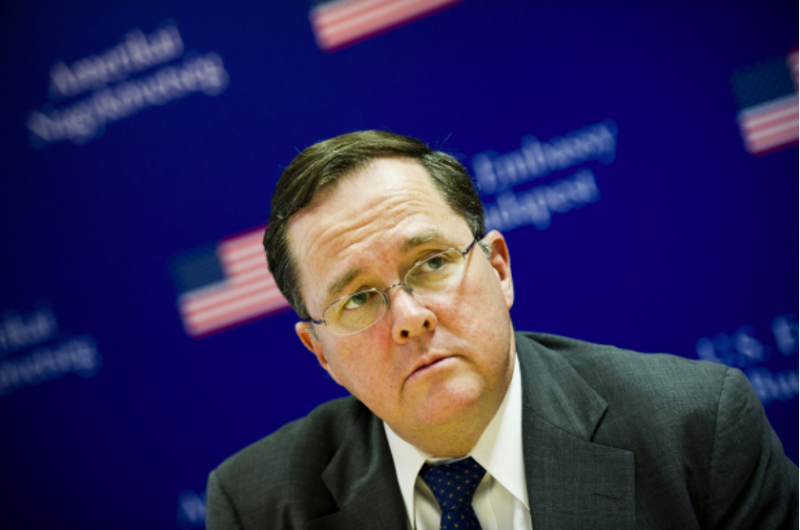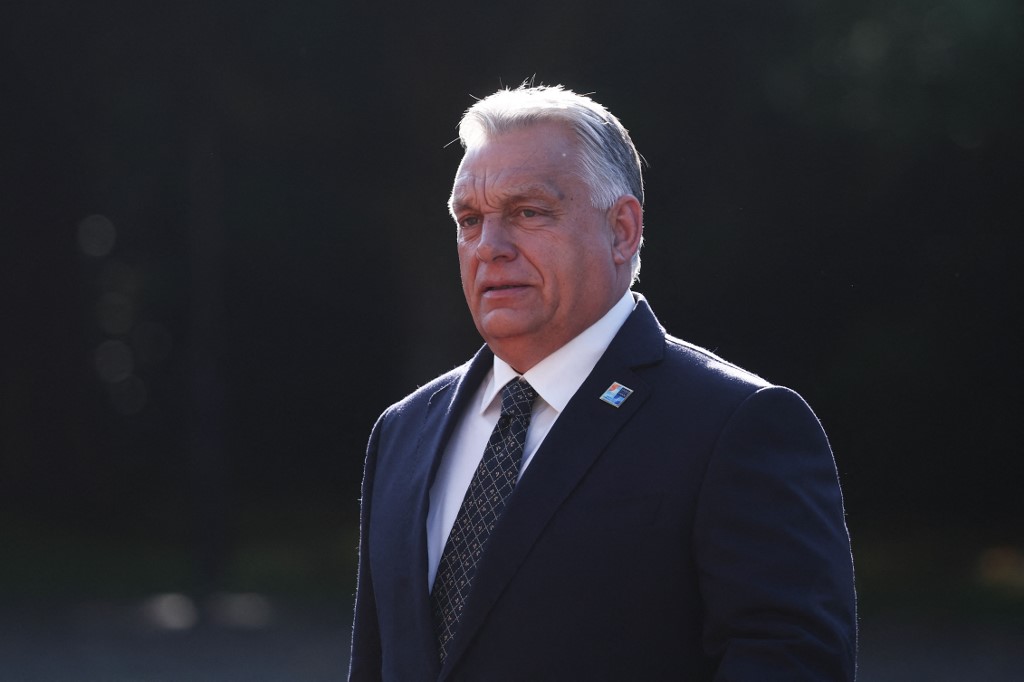Thomas O. Melia: Mr Orban will not escape justice
How do you see the latest developments in Hungary, such as the Gruevski affair or the case of Russian arms dealers?
Hungary under its current government continues to behave like the weakest link in the Western alliance. From the still-secret pact with Rosatom that violated EU procurement rules and strengthened Russia’s hand in the Paks nuclear power plant (and the European energy grid) at the expense of western alternatives; to Hungary’s continuing obstruction of NATO’s cooperation with Ukraine. Last week in Brussels Peter Szijjarto reiterated this political blockade, and then this week, Russia escalated its military aggression against Ukraine with a violent military blockade of the Kerch passage into the Sea of Azov.
At the same time—and ironically, for a government that is so hostile to migrants seeking asylum from war and repression—Hungary has earned a reputation as the ’back door to Europe’ for some truly malevolent individuals. From the infamous golden visa program that fast-tracked into the EU with residency status moneymen for the Syrian dictator, arms dealers from Russia and many Chinese ‘investors’ – to the present moment.
Now Hungary is providing refuge for a Macedonian politician, properly convicted of corruption, who has avoided going to jail, because without a passport he has magically arrived in Hungary as a guest of the prime minister. Indeed, reports suggest Hungarian diplomats spirited Mr. Gruevski from Skopje, through Albania, and north to Budapest.
This is no longer just a concern about Putin’s favorite prime minister in NATO, or just about the erosion of democratic checks and balances in Hungary. We have arrived at a point where the government of Hungary appears to be Europe’s most problematic rogue actor.
A few days ago on Twitter you have posed a very serious question: 'Who will do the same for Viktor Orbán when his time comes?' Will the time of the Hungarian prime minister come, too?
The true stories of corruption in Hungary—from the diversions and misuse of EU funds to the government deals that benefit the inner circle of the prime minister and his family—will eventually be clear to all the world and of course to all Hungarians. It is only a question of time. Look at the story published last Sunday in The New York Times by Ben Novak and Patrick Kingsley, about the ruination of Origo, which for many years was a serious news organization, but is now another mouthpiece for the government. Similar stories of government pressure and collaborating businesspeople will eventually be public record.
Mr Orban will not escape justice, even if it is historical judgment that comes in the future when his grandchildren will read about the crimes that were committed.
If the time of reckoning comes sooner, then he should be hoping for a place that will provide him safe harbor. Maybe there will be a nice dacha in Russia or Kazakhstan, places he claims to admire so much. Of course, he may have a softer landing than his business partners in these initiatives. They should really be worried about their future in Europe.
 Thomas O. Melia declares: Hungary under its current government continues to behave like the weakest link in the Western alliance
Thomas O. Melia declares: Hungary under its current government continues to behave like the weakest link in the Western allianceWhat do you think about the internal situation in Hungary these days?
Throughout this sorry period of the past nine years, one recurring theme has been the persistent effort to suppress freedom of expression in Hungary. The continuing takeovers or closures of private news outlets, and the complete control over the public airwaves, suborning them to the interests of the governing party – these recall the days of the Kadar period, with a bit more commercial opportunity and travel options for Hungarians permitted today.
Other ways that free expression is being suppressed include the draconian laws of June 2017 and June 2018 criminalizing the work of civil society organizations, especially those groups that provide humanitarian assistance to migrants or advocate on their behalf. All the Hungarian refugees and their descendants around the world have tears in their eyes when they hear of these actions in Budapest.
The government’s battle to close Hungary’s most prominent and highly regarded university, Central European University, has led to widespread international uproar—and tens of thousands of demonstrators on the streets in Budapest, too. My colleagues at PEN American joined me earlier this month in signing an open bipartisan letter opposing the expulsion of CEU.
And speaking of PEN, the global association of writers clubs, it is especially concerning that Gyorgy Konrad has in recent months been the target of attacks by the trolls that echo official disparagement. Mr Konrad was one of Hungary’s most famous writers during Communist decades, and played a leading role in culture and politics when the end of Communism came in 1990. He was so famous as a dissident writer that he was elected by the global network to be President of PEN International, leading our global association for a three-year term 1990-1993. That the government today has its minions attacking the 85-year-old Mr Konrad, when they should instead be honoring his life and work for the nation, is very sad.

As an expert, a former diplomat aware of Hungarian affairs, how do you see Hungarian-US relations? Do you think the American president, perhaps because of the ideological proximity between him and Orbán turns a blind eye over the security and alliance abuses of the Hungary and its prime minister, who is committed to Vladimir Putin?
It is fascinating that Putin has so charmed both Trump and Orban, elected leaders of two countries that Putin is trying to weaken and disrupt.
Recent days have shown us that both Trump and Orban have embraced the Russian post-truth mantra that is too hard to know what the facts are on important issues. Recall that Mr Trump said last week, in response to careful analysis from our CIA that the Crown Prince of Saudi Arabia is responsible for ordering the murder of journalist Jamal Khoshoggi, 'maybe he did and maybe he didn’t'. Mr Orban a few days later said it was 'important' that the Hungarian government refrain also from commenting on Gruevski’s conviction and the several other judicial cases pending against him in his homeland. 'There are complicated political battles and games going on in Macedonia and the justice system is part of it', Orban said. 'I myself don’t know what is true and what is not true because it is practically impossible to decide.'
Are you waiting for any difference to next year's European Parliament elections?
I am looking forward to the campaign for the European Parliament which provide opportunities for new political formations to emerge, like Momentum which is interesting. And I hope, if he stands as a candidate and is re-elected, my old Twitter-friend Tamas Deutsch will begin to participate in the proceedings of the EP and actually represent those voters who support him.





